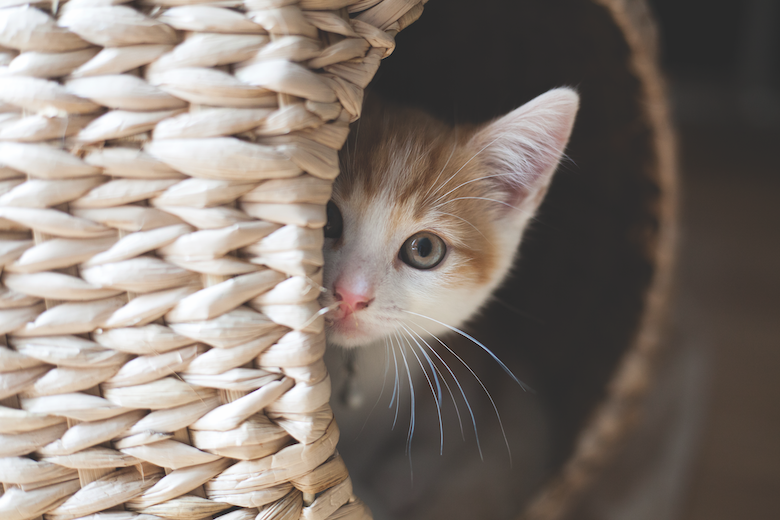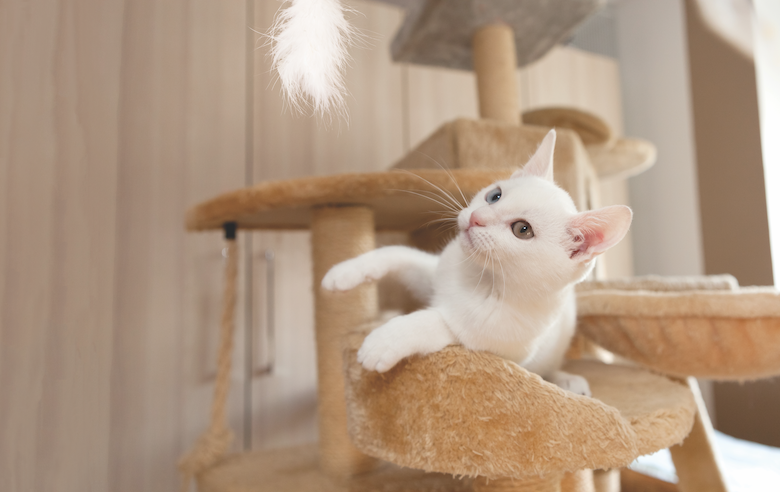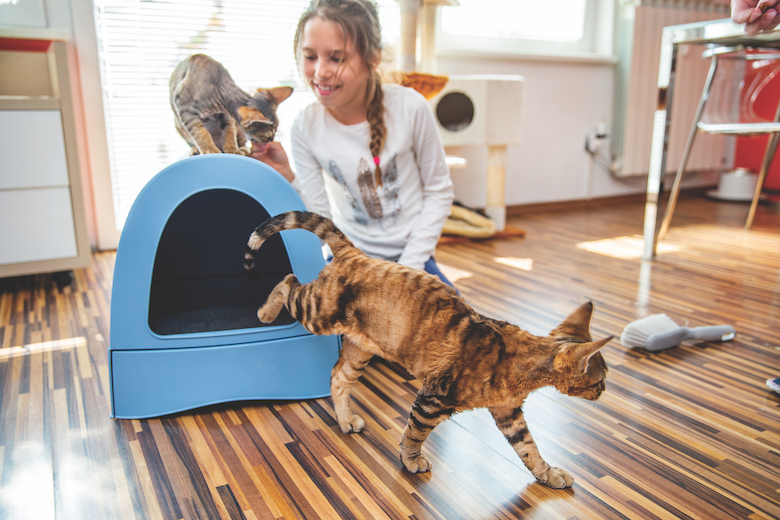Help Your Cat Love The Great Indoors
The post Help Your Cat Love The Great Indoors by Steve Dale appeared first on Catster. Copying over entire articles infringes on copyright laws. You may not be aware of it, but all of these articles were assigned, contracted and paid for, so they aren't considered public domain. However, we appreciate that you like the article and would love it if you continued sharing just the first paragraph of an article, then linking out to the rest of the piece on Catster.com.
You know how you felt being quarantined, trapped inside your home. Bored, lonely, isolated. Still, you had Netflix and an array of TV and cable options. You could pick up a book or use services like Zoom to chat with others. Think about it. Our cats are under quarantine 24/7 every day without TV or Zoom or books to read. Of course, our cats have no interest in watching Schitt’s Creek and most certainly not Tiger King, plus they may annoy us while we try to read a book, but they can’t entertain themselves with book clubs or discussion groups on Zoom. They can’t enrich their lives by themselves.
Related: Coronavirus and Cats: What Cat Owners Need to Know About COVID-19

Photo: PhenomArtlover | Getty Images
Why say no to the outdoors
Still, the other option — going outside — is downright dangerous. Outdoors, cats just don’t live as long as indoor-only cats. (Data varies on how long.) According to How Long Do Cats Live? Facts About the Average Cat Lifespan, outdoor cats live three to 10 years.
Somehow people believe cats are savvy enough to avoid vehicles; sadly, that’s just not true. Without parasite protection (and many pet parents don’t provide this protection) outdoor cats can get cytauxzoonosis (bobcat fever) — a potentially deadly tick disease. While an argument can be made to protect indoor cats from heartworm carried by mosquitoes, they are more prone to it if they are outside. Outdoors, cats can lap up potentially deadly antifreeze or snack on a toxic plant. In the winter, desperate for warmth, cats may slink under a car hood of an unknowing individual who then starts the car.
Outside, cats can be attacked by other cats and are sometimes at the other end of angry humans who don’t like cats. That’s especially true if the cat is using a neighbor’s garden as a litter box. In a sense, can you blame the neighbor?
“And cats are hunters; they are hard-wired to hunt” adds veterinary behaviorist Dr. Kelly Ballantyne of Chicago, Illinois. “They will catch native wildlife, including songbirds. The cats are not to blame, though; they are only doing what comes natural.”
Related: 4 Ways To Safely Give Your Indoor Cat a Taste of the Outdoors

Photo: w-ings | Getty Images
How enrichment helps
So, can cat parents meet enrichment needs and still maintain cats indoors? “Absolutely!” states Dr. Ballantyne, who co-authored a chapter about creating a feline dream home in the book Decoding Your Cat, authored by members of the American College of Veterinary Behaviorists.
But is this so simple? How do you provide changes in the home for a species that, more than anything else, detests change?
Dr. Ballantyne laughs, “Well, that is a good question, and the answer is like anything else with cats, take it slow and gradual and always at the cats’ pace.” While some cats may love you adding five empty boxes and 20 toys all at once and with unusual scents, many cats may prefer a more measured approach.
What’s most important is that you provide your cats with enrichment to benefit not only their mental health, but also their physical well-being, explains Mikel Delgado, PhD, a certified applied animal behaviorist in Sacramento, California.
She explains that legendary veterinarian Dr. Tony Buffington discovered that cats urinate outside the litter box often because it’s painful — and these cats typically don’t have urinary tract infections as many once assumed.
These cats may suffer a condition first called idiopathic feline lower urinary tract disease (FLUTD), which he found was later linked to feline interstitial cystitis. It was Dr. Buffington (and colleagues) who showed that these cats weren’t so much in need of a magic drug, but instead the magic cure is simply enriching the environment.
We now know that cats aren’t a low-maintenance pet compared to dogs, just a different maintenance. Dr. Delgado says, “So many cats are living understimulating lives. And that’s a problem for cats, if the cat doesn’t engage with the environment — that could even lead to medical issues, and, yes, depression.”
Cats do lose their lives as a result of unenriched environments. Cats with FLUTD and/or feline interstitial cystitis may feel pain when they urinate and are therefore inclined to do so outside their litter boxes.
Unknowing cat parents may feel they’ve tried everything, and the frustration leads to the human/animal bond fracturing. If this occurs, the cat is at risk to being relinquished to a shelter or just booted outdoors.
Dr. Buffington now calls the entire notion of what occurs in some cats living in dull and unenriched environments as Pandora’s Syndrome. “It’s not only the bladder, there are often other signs of stress,” Dr. Delgado explains. “The cat may sometimes hide, there may be blood in the urine, the cat can have GI issues.”

Photo: asarsaGuru | Getty Images
Make home sweet! home
Enrichment ideas are numerous, including understanding that many cats do want a place to hide or somewhere to be alone with their thoughts. Unlike humans, cats use vertical space and seek out places to climb.
Dr. Ballantyne is a fan of food puzzles being scattered around the house, so the cat has to seek or hunt, even indoors. Enrichment also goes well beyond food or treats.
Dr. Ballantyne says to consider the importance of a cat’s sense of smell. Provide periodic novel smells in the home, from silver vine to catnip to packaging from a fish product or a spritz of scent that may be interesting to leave out for cats to discover.
“However, understand what’s interesting to one cat might be offensive to another cat,” says Dr. Ballantyne. “And make sure whatever scents you offer are nontoxic.”
Don’t try just one thing. Add vertical spaces — places to hide, sleep or just observe. Use toys, food puzzles and put interesting things throughout the house for your cat to discover. The secret sauce is simply to provide an enriching environment, which means allowing cats to, well, be cats — to express natural behaviors. Dr. Ballantyne sums it up, “Enrichment shouldn’t be thought of [as] a nice thing to do for cats, but instead it’s a necessary thing to do.”
Top photograph: Photo: Nils Jacobi | Getty Images
Read Next: How To Use An Amazon Box To Entertain Your Cat All Day Long
The post Help Your Cat Love The Great Indoors by Steve Dale appeared first on Catster. Copying over entire articles infringes on copyright laws. You may not be aware of it, but all of these articles were assigned, contracted and paid for, so they aren't considered public domain. However, we appreciate that you like the article and would love it if you continued sharing just the first paragraph of an article, then linking out to the rest of the piece on Catster.com.




Post a Comment